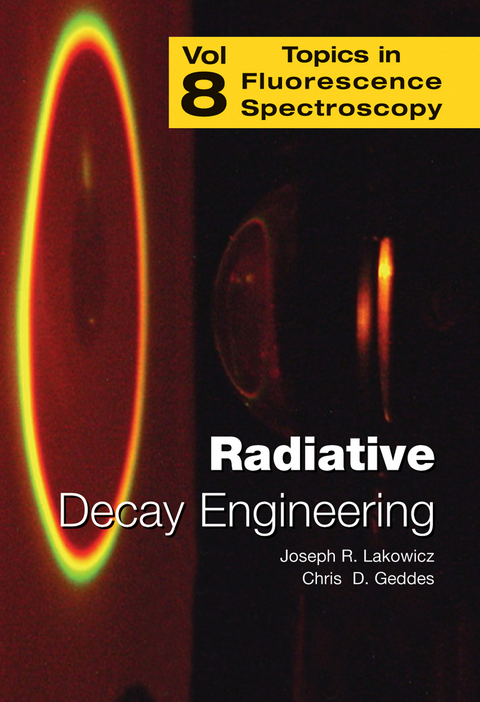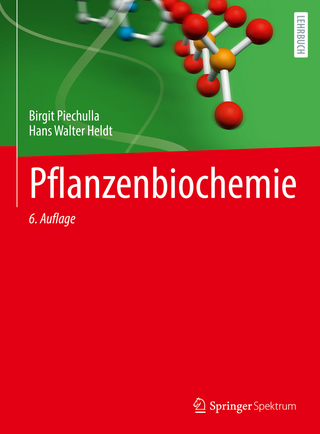
Radiative Decay Engineering
Springer-Verlag New York Inc.
978-0-387-22662-0 (ISBN)
During recent years our enthusiasm for Radiative Decay Engineering (RDE) has continually increased. Many of the early predictions have been confirmed experimentally. We see numerous applications for RDE in biotechnology, clinical assays and analytical chemistry. While implementation of RDE is relatively simple, understanding the principles of RDE is difficult. The concepts are widely distributed in the optics and chemical physics literature, often described in terms difficult to understand by biophysical scientists.
RDE includes chapters from the experts who have studied metal particle optics and fluorophore-metal interactions. This collection describes the fundamental principles for the widespread use of radiative decay engineering in the biological sciences and nanotechnology.
Chris D. Geddes Ph.D., is an assistant professor, and Director of the Institute of Fluorescence, at the University of Maryland Biotechnology Institute, Medical Biotechnology Center, in Baltimore. He has a B.Sc. from Lancaster University in England and a Ph.D. in physical chemistry (fluorescence spectroscopy) from the University of Wales Swansea. He is the editor of the Journal of Fluorescence, Who's Who in Fluorescence, and Annual Reviews in Fluorescence. He is also executive director of the Society of Fluorescence. Dr Geddes has published numerous papers, review articles and book chapters etc, on the Principles and Applications of Fluorescence. Dr. Joseph R. Lakowicz is Professor of Biochemistry at the University of Maryland School of Medicine and Director of the Center for Fluorescence Spectroscopy. Dr. Lakowicz has published over 400 scientific articles, has edited numerous books, holds 16 issued patents, and is the sole author of the widely used text, Principles of Fluorescence Spectroscopy, also published by Kluwer Academic/Plenum Publishers, now in its 2nd Edition.
Preparation of Noble Metal Colloids and Selected Structures.- Near-Field Scanning Optical Microscopy: Alternative Modes of Use for NSOM Probes.- Nanoparticles with Tunable Localized Surface Plasmon Resonances.- Colloid Surface Chemistry.- Bioanalytical Sensing Using Noble Metal Colloids.- Theory of Fluorophore-Metallic Surface Interactions.- Surface-Enhancement of Fluorescence Near Noble Metal Nanostructures.- Time Resolved Fluorescence Measurements of Fluorophores Close to Metal Nanoparticles.- Copper-Coated Self-Assembled Monolayers: Alkanethiols and Prospective Molecular Wires.- Principles and Applications of Surface-Plasmon Field-Enhanced Fluorescence Techniques.- Optically Detectable Colloidal Metal Labels: Properties, Methods, and Biomedical Applications.- Noble Metal Nanoparticle Biosensors.- Surface Plasmon-Coupled Emission: A New Method for Sensitive Fluorescence Detection.- Radiative Decay Engineering (RDE).
| Reihe/Serie | Topics in Fluorescence Spectroscopy ; 8 |
|---|---|
| Zusatzinfo | 295 Illustrations, black and white; XVIII, 458 p. 295 illus. |
| Verlagsort | New York, NY |
| Sprache | englisch |
| Maße | 170 x 250 mm |
| Themenwelt | Naturwissenschaften ► Biologie ► Biochemie |
| Naturwissenschaften ► Chemie ► Analytische Chemie | |
| Naturwissenschaften ► Physik / Astronomie ► Angewandte Physik | |
| ISBN-10 | 0-387-22662-1 / 0387226621 |
| ISBN-13 | 978-0-387-22662-0 / 9780387226620 |
| Zustand | Neuware |
| Haben Sie eine Frage zum Produkt? |
aus dem Bereich


